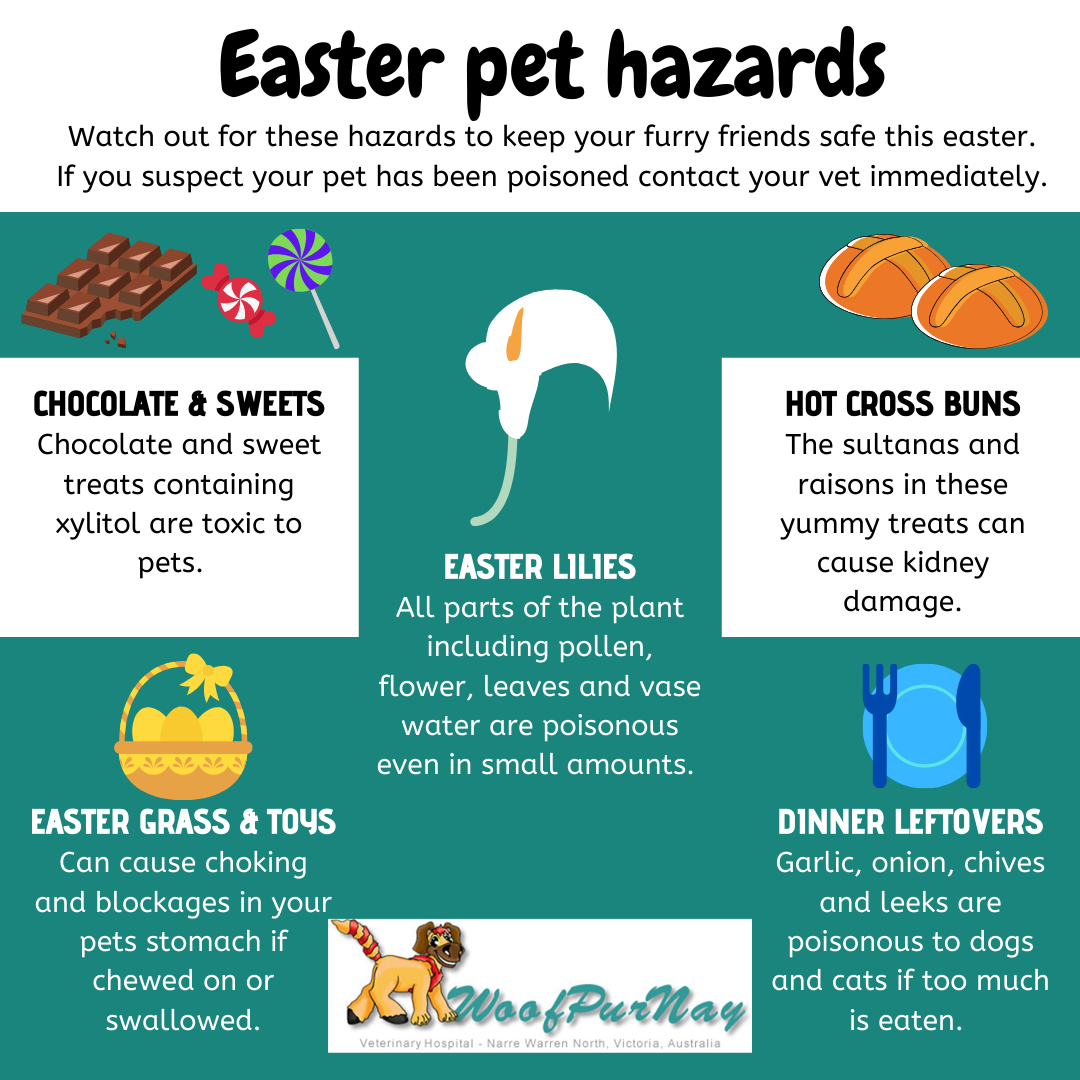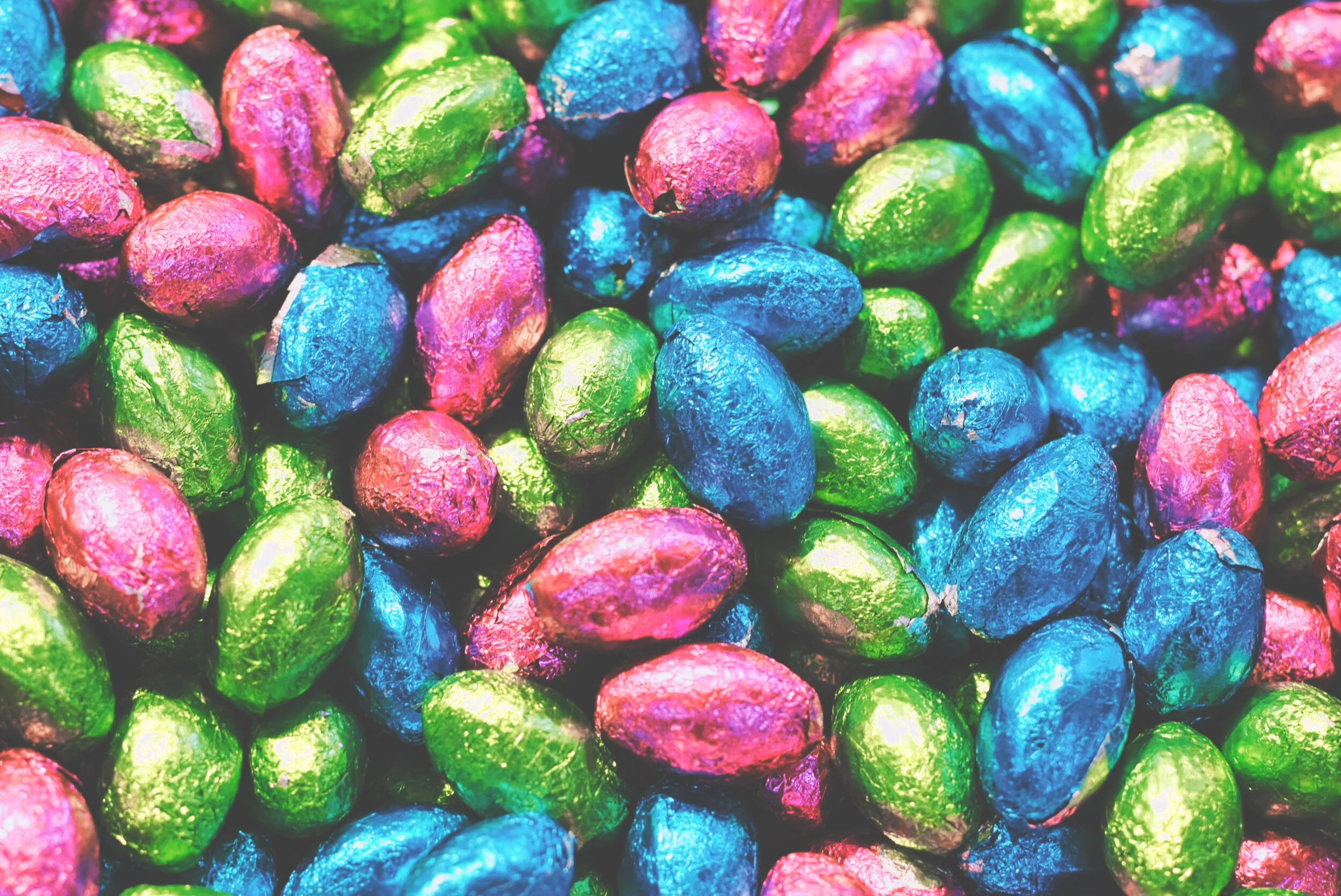Top 5 hazards for pets at Easter
It’s not long before the Easter bunny arrives. There are plenty of ways to have fun this Easter including a pet friendly Easter hunt, camping, catching up with family and friends, eating hot cross buns and more. Your pet will love being around to join in with the fun, however there are a few hazards to watch out for to keep your furry friends safe.
1. Chocolate and other sweet treats
Chocolate in all forms - especially dark or cooking chocolate – can be very dangerous, even fatal for our pets. Chocolate contains a derivative of caffeine called theobromine. Theobromine is a stimulant, which means if your pet eats chocolate, their heart rate increases or beats irregularly and they become hyperactive. Pets have trouble digesting theobromine and if they ingest a toxic amount they can become very unwell, occasionally with fatal outcomes.
Symptoms of chocolate poisoning include:
Hyperactivity
Rapid breathing
Increased heart rate
Vomiting and/or diarrhoea
Tremors
Seizures
Contact your vet immediately if your pet has eaten any amount of chocolate. In most cases, we can make your pet vomit to prevent any nasty side effects.
Also many lollies and sugar free treats that contain xylitol are toxic to pets. Such poisoning can lead to lethargy, loss of balance, permanent brain damage, liver failure and even death. So make sure these are kept well out of reach from your pets.
2. Easter grass & toys
Artificial grass that is often used in Easter baskets and other Easter decorations can be tempting for a playful pet. So can those tiny baby chicken toys, plastic eggs and bunnies that are often used as basket stuffers. Easter grass and small toys can cause choking or blockages in your pets stomach if chewed on or swallowed. So enjoy the gift giving, but make sure your pet is kept safe too.
3. Easter lilies
Easter lilies, along with several other varieties of lilies are highly toxic and potentially fatal to cats. Some types are also toxic to dogs.
All parts of the plant, including the pollen, flower, leaves, as well as the water the flowers are stored in are poisonous even in small amounts. Given the high risk and devastating consequences, the safest thing you can do is to keep lilies out of your home if you have a cat.
Symptoms of lily poisoning include:
Vomiting
Lethargy
Loss of appetite
Excessive or increased thirst and urination
Drooling
Hiding
Contact your vet immediately if you suspect your pet has come in contact with lilies. Early treatment is the key to saving your pets life.
4. Hot cross buns
The sultanas and raisons in these yummy treats are toxic to dogs and can cause significant kidney damage. So keep these away from your furry friends and make sure you pick up any bits that happen to fall on the floor too (particularly important to households with young children).
5. Dinner leftovers
Garlic, onion, chives and leeks are in the Allium family and are poisonous to both dogs and cats if too much is eaten. These common ingredients are often found on the dinner table so avoid giving your pet any leftovers for their dinner or a treat.
What to do if your pet eats something toxic
If you suspect your pet has swallowed something toxic or is displaying signs of poisoning, contact your vet immediately.
It’s also a good idea to be prepared and have local emergency numbers on hand and familiarise yourself with any special emergency hours over long weekends and public holidays.
On behalf of Woofpurnay Veterinary Hospital we wish you, your family, pets and loved ones a safe and happy Easter.




